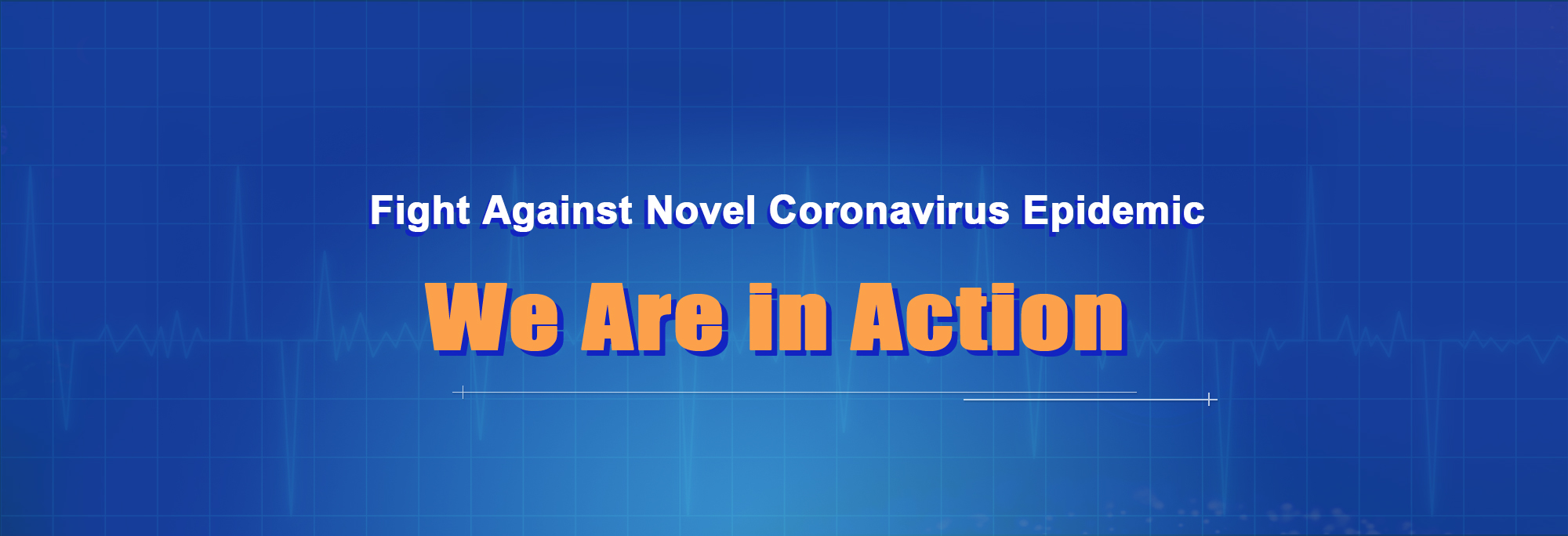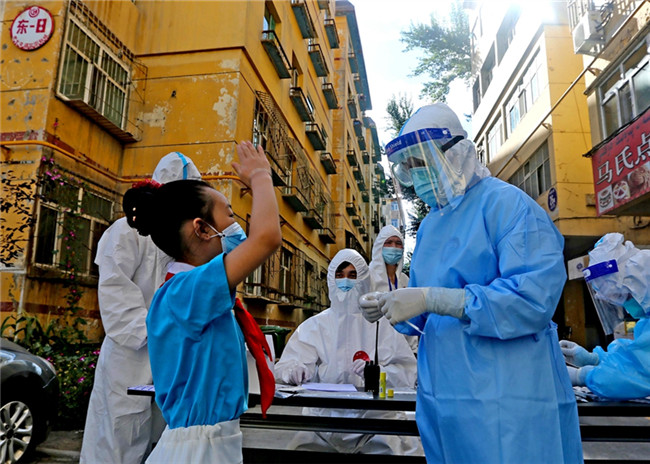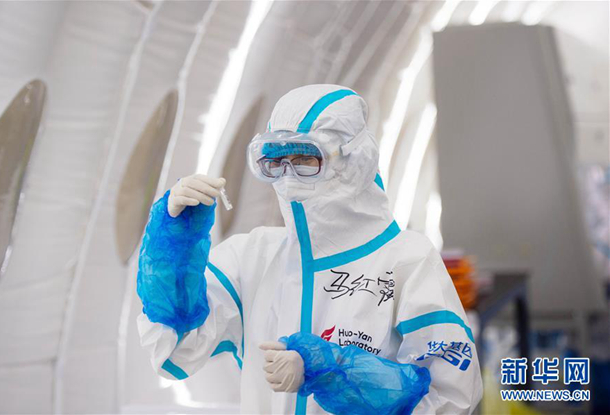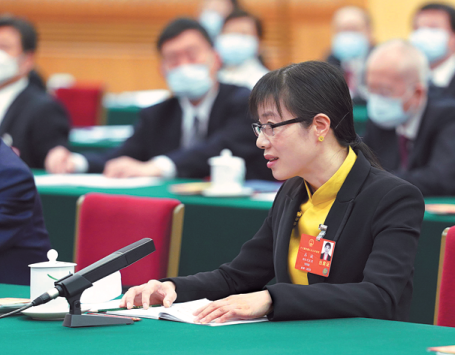
Emotional Response as Crucial as Physical Recovery
As well as overcoming the physical challenges posed by COVID-19, there is a need to tackle the psychological fallout from the pandemic, Li Yingxue reports.
Five days after Wuhan, capital of Hubei Province, was locked down in January, Liu Zhengkui and his team started an operation of psychological assistance and psychological crisis intervention to help people at the epicenter of the pandemic.
"Usually we start the operation right away when an emergency happens, but the pandemic is different because it's an infectious disease, so it took us a couple days to figure out how to proceed," Liu, a researcher at Institute of Psychology of the Chinese Academy of Sciences, explains.
Liu spent almost three months in Wuhan providing psychological assistance to local medical workers, recovered COVID-19 patients and community staff since March. At the end of August, he will return to continue his work.
Initially, the operation was planned to last for a year, but recently Liu's team has managed to secure the funding and support to extend it by two years.
"Large-scale disasters always have long-term influence on people. For people in the core area of the Wenchuan earthquake, its influence has lasted for five years," Liu says. "The influence of the pandemic may last as long as three years for people in Wuhan."
Liu says when a disaster happens, the public's attitude usually goes through three steps — nervous and terrified first, then angry, before gradually going back to normal.
"In the first phase, people think their lives are threatened, and then, when they realize their lives or work are unaffected by the disaster, society needs an emotional release and the anger will gradually fade away over time," Liu explains.
In Liu's mind, as transmission prevention has become the norm, the public's mentality also flows into a new phase.
"Social distancing is still required, which will affect people's emotions. There are occasionally new cases showing up in some places in China, which will still make people in those locales feel nervous again," Liu says.
"The prompt reaction to control the spread of the pandemic when it reoccurs will calm local people more quickly than the first wave, such as the cluster of cases which originated at Beijing's Xinfadi wholesale market," he says.
A seven-day self-help online training camp was launched by Liu's team at the end of January. A special version of the training camp for medical workers went online on February 23 followed by a version for parents and children.
The training camp takes one person 10 to 20 minutes each day to learn how to cope with stress and manage their emotions.
According to Liu, the core content of the training camp is based on the courses and intervention plans that are recommended by the WHO and the Chinese Psychological Society, and have been widely applied in many post-disaster psychological rebuilding operations worldwide.
"The content is combined with psychology research literature and also experiential decompression training," Liu adds.
"We also have an online psychological counseling team. If there are situations that the person who takes part in the camp cannot deal with alone, the specialists will offer help," he says.
So far, around 250,000 people have finished this online training camp, Liu says.
Liu's team was founded in 2008.They helped people affected by the Wenchuan earthquake. The team includes six tutors and a dozen students.
Liu says the strength of one team is not enough. Therefore, their team produced a list of more than 800 psychology service institutions across the country and trained them to be able to help their local communities.
Technology has also played an important role in this operation. More than 1,000 smart bracelets have been distributed to medical workers, recovered COVID-19 patients and community staff.
"The bracelet can warn people if he or she has a violent mood swing and push some information about how to manage the emotions," Liu says.
Besides helping in Wuhan, Liu's team has also opened a nationwide hotline for people to ask for help. More than 400 experienced psychological counselors take shifts to answer the calls.
Li Huijie, a member of the National Alliance of Psychological Aid, is one of the volunteers manning the phones for the hotline.
Li stresses that it's normal for the public to experience feelings of worry, fear and anxiety, and people should understand and accept this situation.
"When a crisis happens, some people will exhibit certain emotional and physical behaviors they would otherwise not display. It is a normal reaction for people in an abnormal situation," Li explains.
(Source: China Daily)
 Women Medics in NW China's Xinjiang Contribute to COVID-19 Epidemic Containment
Women Medics in NW China's Xinjiang Contribute to COVID-19 Epidemic Containment Women CPC Members on Front Line of Anti-COVID-19 Battle in Beijing
Women CPC Members on Front Line of Anti-COVID-19 Battle in Beijing Deputy Recalls Role in COVID-19 Fight
Deputy Recalls Role in COVID-19 Fight- Woman Epidemiological Researchers Race Against the Clock on Front Line
 Pic Story of Nurse Who Aided COVID-19 Fight in Wuhan
Pic Story of Nurse Who Aided COVID-19 Fight in Wuhan Volunteer Provides Milk Tea, Back up Anti-Epidemic Workers in NE China
Volunteer Provides Milk Tea, Back up Anti-Epidemic Workers in NE China

 京公网安备 11010102004314号
京公网安备 11010102004314号